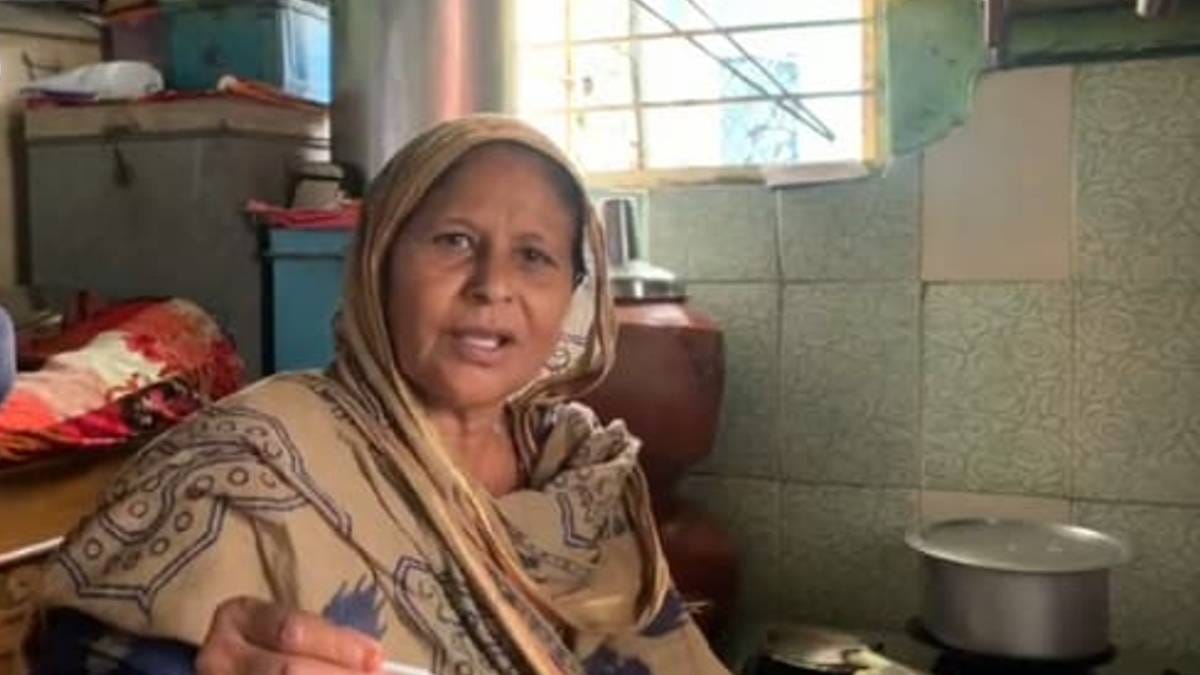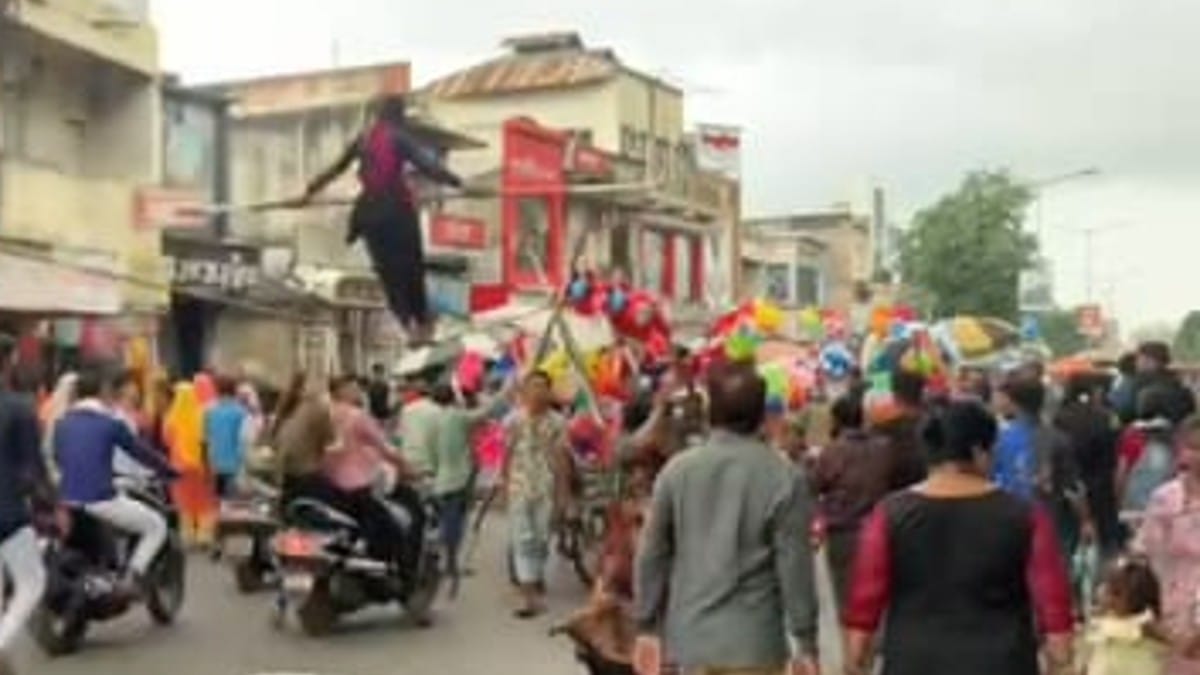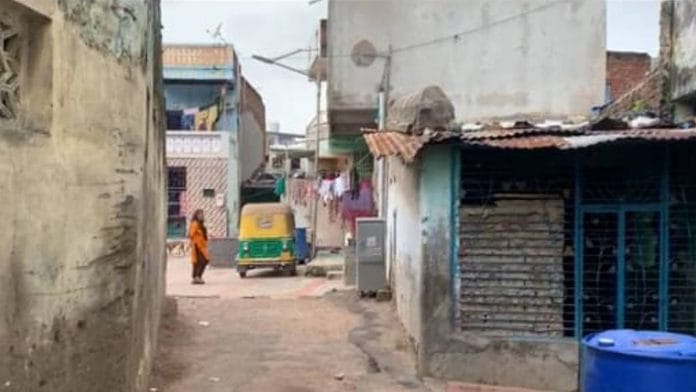Naroda: All vehicular entryways to Naroda and Naroda Patiya were barricaded Friday. Police presence in these localities of Ahmedabad, which had seen the worst of the 2002 Gujarat riots, is usually linked with something ominous.
But, on Friday, it was for a fun fair on the streets of Naroda, where children jumped on trampolines, a young girl walked on a rope enthralling watchers, while the adults bought sundry items from the stalls that had been set up on the pavements.
Amid a raging controversy over the release of 11 convicted in the 2002 Bilkis Bano gang rape case, at Naroda and Naroda Patiya — where an armed mob of about 5,000 people killed over 97 people during the 2002 riots — life was going on as usual.
The Muslim families of the neighbourhood were angry over the Gujarat government’s decision to grant remission to 11 people convicted of gang raping Bilkis Bano in Randhikpur, about 174 kilometres away. But, Naroda-Naroda Patiya have seen two decades of peace since the riots, and with the scars of 2002 still raw, residents don’t want to risk rocking the boat.
“We feel bad about what happened with Bilkis Bano. But, we can’t do anything about it. If Allah wills it she will get justice,” Hussaina Mansoori, whose house had been reduced to a rubble in 2002, told ThePrint.

A mob at Gujarat’s Randhikpur village gang-raped Bano and according to the prosecution, killed fourteen members of her family — including her three-year-old daughter Saleha — while they were fleeing during the Godhra riots in March 2002. Bano had been 19, and five months pregnant at the time. The Gujarat government’s remission to the 11 convicts comes in a year when the state will elect a new assembly.
Speaking about Bano’s case brought back memories of her own tragedy for Mansoori.
“We will never forget. They came in the dead of the night carrying stones, knives, sickles. They blasted our house by setting fire at the cooking gas outlet. Back then, there were fewer houses in the mohalla (colony) and so there were four or five ways out. We ran for our lives,” she said.
She added that if something like this were to happen today, many more lives will be lost. “More houses have come up, and now there are just two ways out of this mohalla,” she said.
A few blocks away from Mansoori’s house, Rahima clammed up at the memory of the 2002 riots. She said, she was “too numb to talk about it”, but added that her family has rebuilt their life. “My sons are working in cities such as Anand, Nadiad, Surat. One of them has a flourishing shop. We are living in peace now,” she added.
Also read: Victimisation, bad mahaul, Hindu-Muslim bond: Bilkis convicts try to push claims of innocence
‘We move out of if there’s any tension anywhere’
On 28 February, 2002, a day after the Godhra train burning incident, a large crowd gathered at Naroda and Naroda Patiya and attacked the area’s Muslim residents, allegedly killing 97 people and injuring 33 others.
Ten years later, a special court convicted 32 accused, including former Bharatiya Janata Party (BJP) MLA Maya Kodnani in the case. In 2018, the Gujarat High Court upheld 12 convictions, but acquitted Kodnani.
It has been two decades since the massacre, but even now, every time there’s a communal conflict anywhere in the country, several Muslims in the neighbourhoods of Naroda and Naroda Patiya prefer moving out for a few days.
“There has been no untoward incident here since the 2002 riots. But, it’s difficult to forget what happened back then. Every time there’s any threat of unrest anywhere in the country, some of us who have other homes in the state just move out for a few days,” Shireen, whose mother lives in Naroda, told ThePrint.
Riyaz Quereshi, who owns and drives a rickshaw in the neighbourhood, recalled how a few families had left after the riots in Delhi’s Jahangirpuri earlier this year, and a few years ago when the judgment on the Ayodhya Ram Temple was expected.
“There’s no problem here, but the neighbourhood has been through enough and we always fear what if a stone lands in our area,” he said.
Some contend that overall, the number of Muslims in Naroda and Naroda Patiya have plummeted after 2002.
“Many who lost their livelihoods simply left. Over a period of time, the neighbourhood has shrunk. Some who stayed back are sending their children to other places in Gujarat,” Babubhai Adi Moosabhai Karwan told ThePrint.
“There is peace, but there is also fear. We are tired of talking about the situation here. Nothing is going to change,” he added.

Hussaina’s son, Sahil Mansoori, blames politicians for the situation.
“There has been no problem in this area (since the riots). All our Hindu brothers here are good to us. We all co-exist peacefully. It’s only the politicians who brainwash some people.”
He added: “Otherwise you see, there’s a mela (fair) outside. Our children are out there with theirs. We have stepped out after our namaz. Nobody wants conflict. It is just these politicians who we need to educate”.
(Edited by Poulomi Banerjee)
Also read: Bilkis Bano case convicts controversy: Why the 11 were released under ‘old’ 1992 policy






